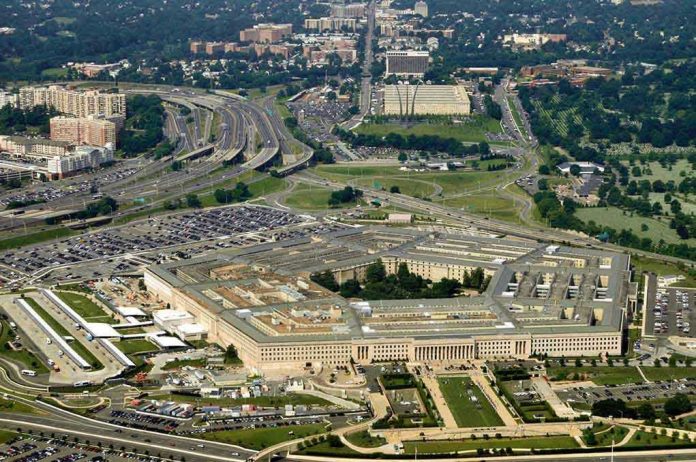
Pete Hegseth’s push for the first military execution in over six decades is electrifying a dormant debate on justice, patriotism, and deterrence in American military history.
Story Highlights
- Pete Hegseth is seeking presidential approval to execute Nidal Hasan, convicted for the 2009 Fort Hood massacre.
- If approved, this would be the first military execution in the United States since 1961.
- The move reignites national conversations about capital punishment, military justice, and ethical boundaries.
- Beneath the headlines lies a test of American values and legal precedent.
Pete Hegseth’s Military Justice Gambit: A Historic Decision Looms
Defense Secretary Pete Hegseth is calling for presidential authorization of the death penalty against Nidal Hasan, the former Army major who killed thirteen and wounded dozens at Fort Hood in 2009. The legal machinery for military executions has been all but abandoned since 1961, when John Bennett was hanged for rape and attempted murder. Hegseth’s effort signals a dramatic shift in federal willingness to apply capital punishment to military personnel convicted of egregious crimes.
Hegseth’s announcement has stirred deep emotions among veterans, military families, and political commentators. Hasan, after a lengthy trial, was sentenced to death in 2013, but his punishment has remained in limbo amid appeals and procedural delays. Hegseth’s campaign to move forward is rooted in a belief that justice delayed is justice denied. For many, the military’s reluctance to enforce its own maximum penalty raises questions about deterrence and the sanctity of military law.
Reactivating a Dormant Policy: Why Now?
The rarity of military executions is no accident. Since the Supreme Court’s shifting stance on capital punishment and evolving views on human rights, military courts have been cautious. Hegseth’s push is not just about Hasan; it’s about reaffirming the seriousness of military justice. Supporters argue that the military must demonstrate zero tolerance for acts of terror within its ranks. Critics warn against conflating vengeance with justice and urge restraint, citing the irreversible nature of execution and the potential for international backlash.
Public sentiment is fractured. Some Americans see Hegseth’s move as overdue, a necessary correction after years of perceived weakness. Others fear that restarting executions opens the door to abuses or sets a precedent that erodes legal safeguards for service members. The tension between security and morality is palpable, with both sides invoking the nation’s founding values as justification for their stance.
The Broader Implications: Justice, Deterrence, and National Identity
If the president grants Hegseth’s request, the case will become a defining moment for American military justice. It may signal a new era in which the military courts reclaim authority and enforce the most severe punishments. This decision would inevitably shape future debates about the role of capital punishment, especially as military missions evolve in complexity and risk.
The Hasan case is more than a legal drama—it’s a stress test for American values. Do we prioritize retribution, or do we uphold mercy even for the most heinous offenses? For readers who lived through the Fort Hood tragedy or who have served in the armed forces, this story is deeply personal. It taps into questions about safety, honor, and the responsibility of those entrusted with the nation’s defense.
Waiting for the Final Word: What Comes Next?
With the outcome now in the hands of the president, speculation abounds. Will this be a watershed moment for military justice, or will historical inertia prevail? Hegseth’s advocacy has ensured that the decision will not pass quietly. The eyes of the nation—and the world—are watching for a signal on how America balances security, justice, and humanity in the most extreme cases.
For the families of Fort Hood victims, closure remains elusive. For military leaders, the precedent set here will reverberate for generations. And for everyday Americans, the unfolding story is a reminder that the boundaries of justice are continuously redrawn by those willing to question the status quo. The final chapter in this saga is yet unwritten, but its outcome will shape how America confronts its darkest moments—and how it defines itself in the eyes of history.
Sources:
Hegseth seeking death penalty for convicted Fort Hood shooter



